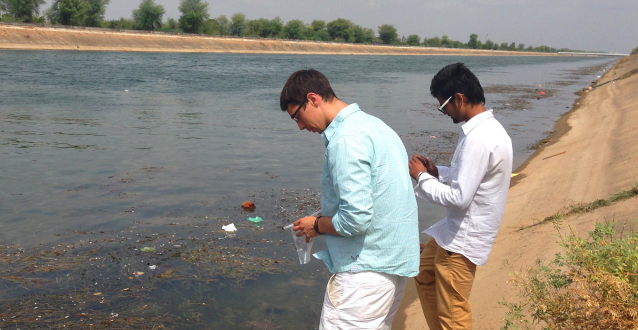Erin Reissman
Partner: USAID
Safe water and improved sanitation are essential to human health and well being throughout the world. In India, only 33% of households treat their water, even though the water could be chemically or bacterially contaminated. So in the summer of 2014, a group of MIT students and faculty, under the program Comprehensive Initiative for Technology Evaluation (CITE), set out to investigate the various household water filtration devices in India.
The CITE team expected to find a variety of different nationally recognized branded filters, but they also found something unexpected: the majority of the Reverse Osmosis (RO) water filter market consisted of locally assembled models. Informal discussions with several subject matter experts lead CITE to believe that approximately 85% of the RO filtration devices in Ahmedabad are locally assembled models.
The proliferation of local brands is due primarily to the following reasons: 1) assembly is straightforward resulting in a low barrier to entry for local entrepreneurs, 2) competitive component supply chains enable entrepreneurs to offer much lower purchase prices than the branded RO filters with similar quality, and (3) the market is lucrative with revenue from both initial sales and from reoccurring service needs.
This report delves into each of these discoveries to help stakeholders working in the developing world to better understand, and potentially replicate, these locally assembled supply chains.

